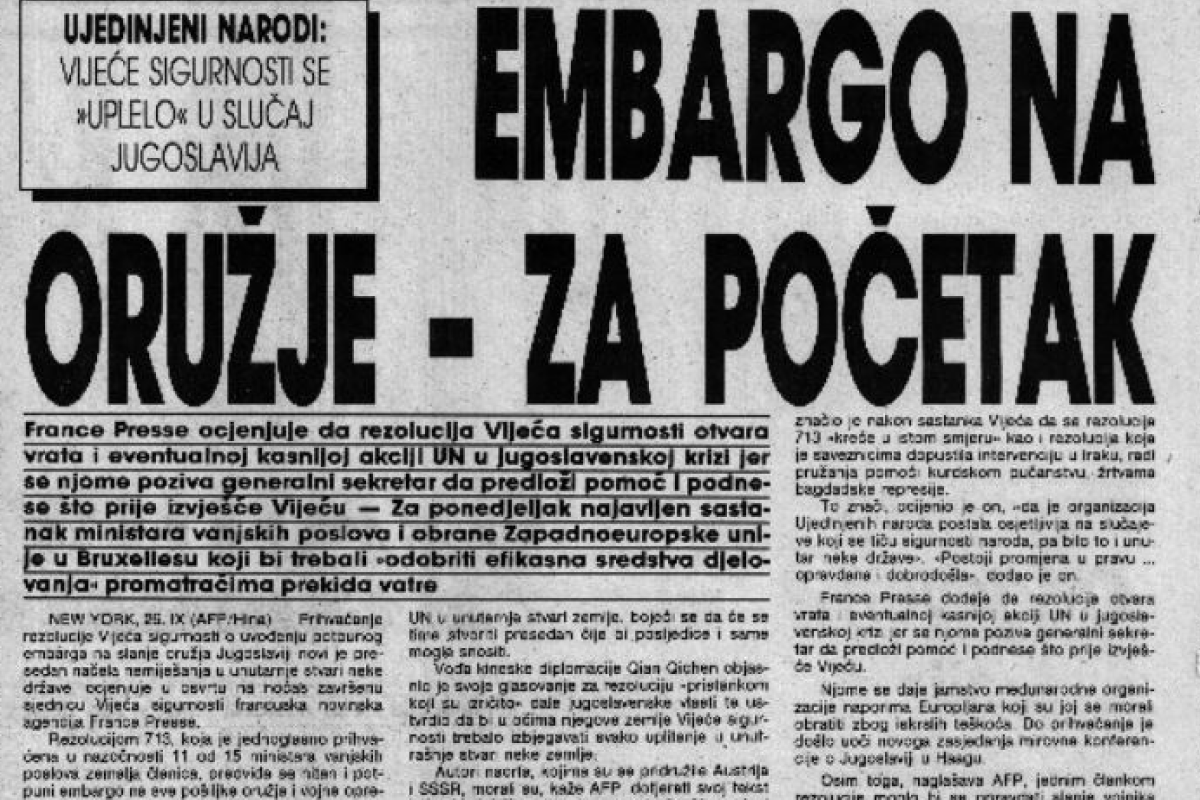On 25 September 1991, the United Nations (UN) Security Council unanimously adopted Resolution 713 which imposed a “complete embargo on all deliveries of arms and military equipment to Yugoslavia.”
The resolution consisted of eight points that were supposed to assist in the resolution of the Yugoslav crisis and stressed the need for a peaceful solution and dialogue but the ban on delivering any weapons and ammunition to Yugoslavia was paramount.
At a Security Council session, US Secretary of State James Baker identified the Serbian government and the Yugoslav People’s Army (YPA) as the main culprits for the tragic consequences of the war in Croatia but with the introduction of Resolution 713 the international community actually punished the embattled republic. It essentially prevented Croatia from effectively defending itself against the onslaught of rebel Serbs and the Yugoslav People’s Army.
Already in May of 1990 almost all the weapons of Territorial Defense forces in Croatia were confiscated while the YPA, which in the meantime unequivocally sided with the Serbian rebels and supported Greater Serbian political policy, was one of the most well armed European armies. The fact that Budimir Lončar, then the Minister of Foreign Affairs of Yugoslavia, supported the adoption of the resolution confirmed to the UN that it was justified in its decision.
As early as October 1, the YPA took advantage of the embargo and sent an ultimatum to the Croatian government specifying that it would attack all vital facilities or take large-scale action to end the armed conflict. Shortly thereafter, they began to shell Dubrovnik and tighten the noose around besieged Vukovar and other Croatian cities they had attacked.
Resolution 713 was the first UN resolution passed to resolve the crisis in Yugoslavia but it proved very harmful to the beleaguered Croats. With the arms embargo, the United Nations made it much easier for the Yugoslav People’s Army to fight the poorly armed Croatian forces. It was another in a series of humiliating moves by international diplomacy and the continuation of a policy that would support the survival of Yugoslavia. Subsequent events showed that the Croatian armed forces could fight an enemy equipped with superior technology and on 8 October the Republic of Croatia declared the severance of all state and legal ties with the failed Socialist Federal Republic of Yugoslavia.
Graduated with a Master’s Degree in History from the University of Zagreb. He has worked at the Croatian History Museum and as a researcher for the popular TV Calendar program for Croatian Radio and Television. He has authored several books and documentaries about Croatia’s Homeland War and is the creator/producer of the immensely popular “It Happened on this Day – Homeland War” Facebook page as well as the online portal Domovinskirat.hr. Borna also is the host and editor of the daily segment “Patriotic Minutes” on Croatian Catholic Radio. He created CroHis to promote the values of the Homeland War and ensure that the sacrifices of those who defended Croatia’s independence would not be forgotten.

